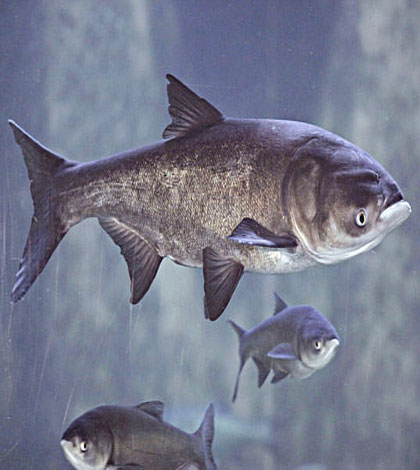ONTARIO – Restore Our Water International (ROWI) is calling on the International Joint Commission, Canadian and US Commissioners to take immediate actions as lake levels in Lakes Michigan/Huron and Georgian Bay basins are at crisis conditions and are calling on the IJC to have the International Lake Superior Board of Control (ILSBC) to reduce the outflow discharge for Lake Superior to reduce to some extent the high water levels on the three lakes.
“The economic and ecological costs of these extreme high water levels could be catastrophic,” Mary Muter, vice chair of ROWI told the Recorder this past Tuesday. She pointed out that both the US Army Corps of Engineers (USACE) and National Oceanic Atmospheric Administration (NOAA) are predicting water levels will be 40 centimetres (about 16 inches) higher in March 2020 than at the same time in 2019.
A letter to the IJC Canadian and US Commissioners, dated November 4, 2019 from Roger Gauthier, chair of ROWI and Ms. Muter, reads, “our organization (ROWI) represents shoreline property owner organizations on both the US and Canadian sides of the Lakes Michigan, Huron and Georgian Bay basins. The economic and ecological damages that are occurring as a result of the extreme high water level conditions on Lakes Michigan, Huron and Georgian Bay have now reached a crisis and IJC action is needed now to address it. Our lake levels now meet the ‘crisis conditions’ as defined in your excellent 1993 Levels Reference Study.”
“What is now very alarming are the projections for spring water levels for our lakes—approximately one to two feet higher than spring 2019,” the ROWI letter reads. Using information provided for Lake Superior and Michigan/Huron, “it is obvious that Lakes Michigan/Huron and Georgian Bay are not being treated equitably by your International Lake Superior Board of Control (ILSBC). Last year our organization sent letters to the ILSBC recommending action but the reply basically ignored ROWI’s concerns and dismissed us. This unfair treatment of our lakes has to stop now. We strongly recommend that you advise the ILSBC to deviate immediately from Regulation Plan 2012 and reduce the outflow discharge from Lake Superior as an emergency measure to at least reduce to some extent the crisis high conditions on Lakes Michigan/Huron/Georgian Bay.”
“It is simply unfair and ecologically unsound to continue to allow a 6.5+ foot range for Lakes Michigan and Huron but only a four foot range for Lake Superior. It is well known that a 5 to 5.5 foot fluctuation range benefits wetlands but that any level outside that harms wetland health and reduces their size,” ROWI wrote.
“At this time we have important research results on the wetlands of Georgian Bay to share with you,” ROWI wrote. “One of our member organizations, Georgian Bay Great Lakes Foundation, has been working with McMaster University’s Professor Pat Chow-Fraser for many years on Great Lakes issues, with particular focus on the impact of water levels on wetland health and water quality. Her findings from last summer are, quite frankly, alarming. On Georgian Bay the wetlands at current extreme high water levels have not been able to migrate inland due to granite bedrock shorelines or six to eight feet tall pine trees that are now dead or dying. This has compressed the wetlands into a very narrow congested area with no protected area for the minnows and young fish. Also concerning is that the water quality at these previously pristine wetlands is now highly degraded by nutrients picked up underneath the dead pine trees. This has already led to algal growth, but we fear that algae could be much more widespread next summer, and fish populations will be negatively impacted.”
Ms. Muter told the Recorder that in a location at McGregor Bay last summer, “algae blooms were found where they had not been previously. And if water levels continue to increase much more it could become unsafe in areas, vegetation will be harmed and grass and trees will die, and for instance pine needles release nutrients and this helps cause algae blooms.”
“We sent two letters to the ILSBC asking them to reduce the outflow for Lake Superior but they wouldn’t even consider our request,” said Ms. Muter. “It is not fair that they have outflows in the four-foot range for Lake Superior, but don’t treat the other lakes the same. And the time to reduce the range for Lake Superior is now and the ice blooms to the entrance to the St. Clair River should be left open all winter. But they are not considering the other lakes.”
The ROWI letter adds, “we would greatly appreciate the opportunity to make a brief presentation to the Commissioners. As our reputation has been built on a guarantee of producing sound science, we believe that the IJC Commissioners would benefit from hearing directly in person from us on the startling new findings of our research on wetlands and our well-researched proposals on mitigating the high and low extremes of water levels, especially on Lakes Michigan/Huron/Georgian Bay.”





